American musician and songwriter Tito Puente was born on April 20, 1923, in New York City, New York.
Puente’s family moved frequently during his early life, but he spent most of his childhood in Spanish Harlem. He was an active child, and his neighbors often complained that he was constantly drumming on pots and window frames. When he was seven, Puente’s mother signed him up for piano lessons.
Three years later Puente began learning to play percussion instruments and was inspired by drummer Gene Krupa. He and his sister began performing as a song-and-dance duo and Puente planned to have a career as a dancer. However, he suffered an ankle injury that made a dance career unlikely.
By the start of World War II, Puente was in high school, but was playing with the hottest Latino bands in New York City. He was already a talented musician and excelled at sight-reading – able to play music at first read. Puente attended high school and played with well-known acts like Machito’s Orchestra, Los Happy Boys, and the Brothers Morales Orchestra on weekends.
Puente’s music career was interrupted when he was drafted into the Navy. However he made the most of his time in service and played saxophone and drums for his ship’s band during the war. A pilot helped him learn how to arrange music. Puente served for three years and was discharged with a Presidential Unit Citation for participating in nine battles aboard the USS Santee.
After the war, Puente used his GI Bill to study music theory, conducting, and orchestration at the Juilliard School of Music. He still played regularly, usually on the timbales – a pair of shallow drums with a cowbell or cymbals. Puente formed a new group, the Piccadilly Boys, and soon rose to the top of the mambo/salsa scene.
Puente’s career boomed in the 1950s. He helped to popularize the Afro-Cuban and Caribbean styles of mambo, son, and cha-cha-chá with mainstream audiences. Over time, he began experimenting with other musical styles including pop, bossa nova, and a fusion of Afro-Cuban and Latin Jazz.
Puente received a number of honors throughout his career. In 1969 he received the key to New York City and in 1979 he won the first of his five career Grammy awards. Puente also received a Latin Grammy Award later a posthumous Grammy Lifetime Achievement Award. He also received the National Medal of Arts and a star on the Hollywood Walk of Fame.
Puente had the honor of performing during the closing ceremonies of the 1996 Summer Olympics in Atlanta, Georgia. The drums or “Timbales” that he played there are on display at the National Museum of American History in Washington, DC.
There are stories told how Puente won the title “King of Latin Music” after his band beat one led by Perez Prado in a competition. Also known as “King of the Mambo” and El Rey del Timbal (“King of the Timbales”), Puente was usually just called “the King.” In 2000, the Library of Congress named him a “Living Legend.” For over 60 years, Tito Puente ruled the Latin music scene. He died in New York City on May 31, 2000.
Click here to view Puente’s last performance.
| FREE printable This Day in History album pages Download a PDF of today’s article. Get a binder or other supplies to create your This Day in History album. |
Discover what else happened on This Day in History.

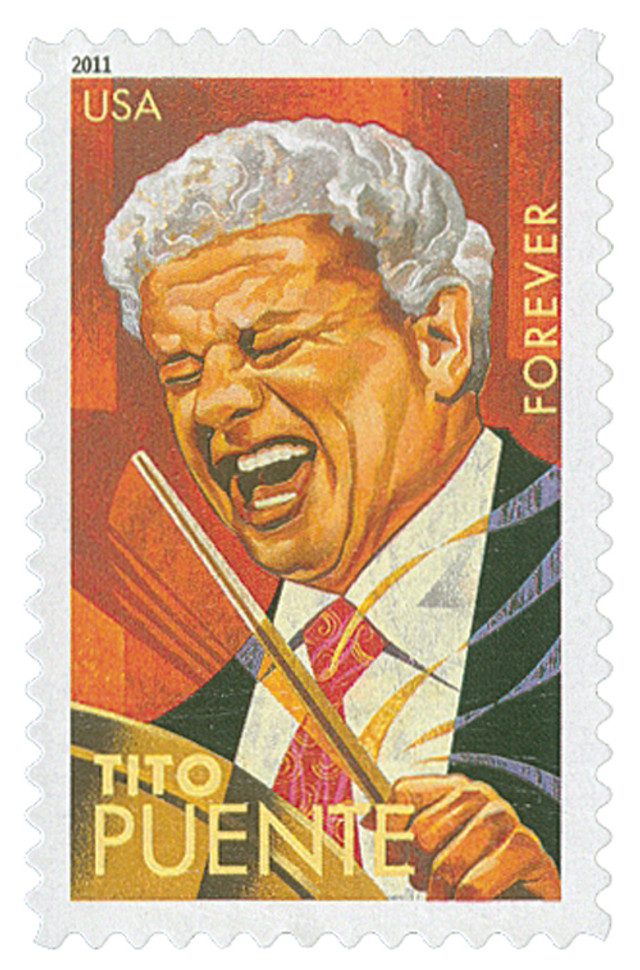
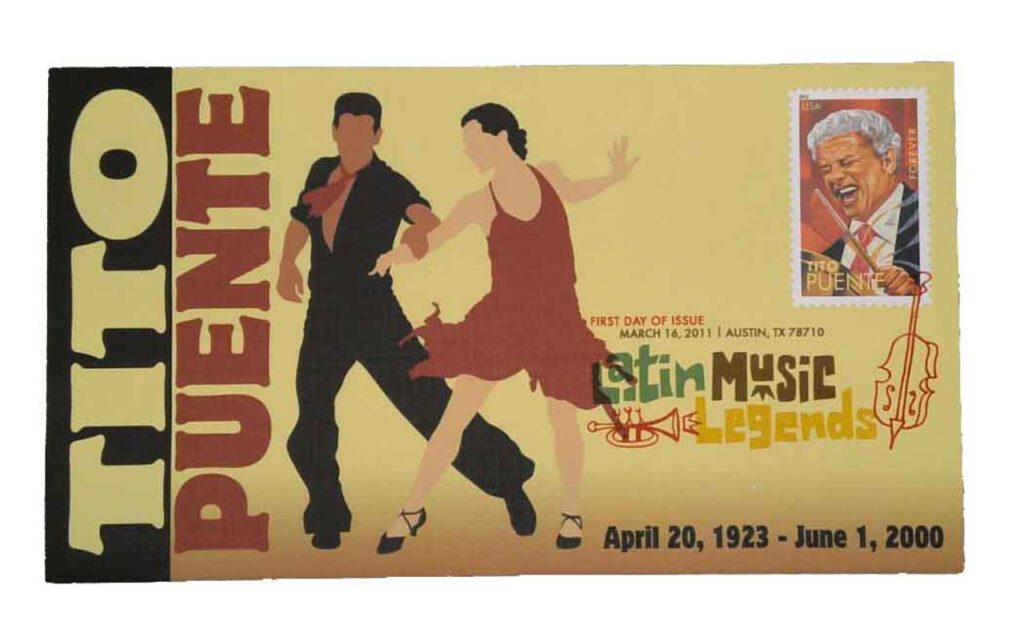
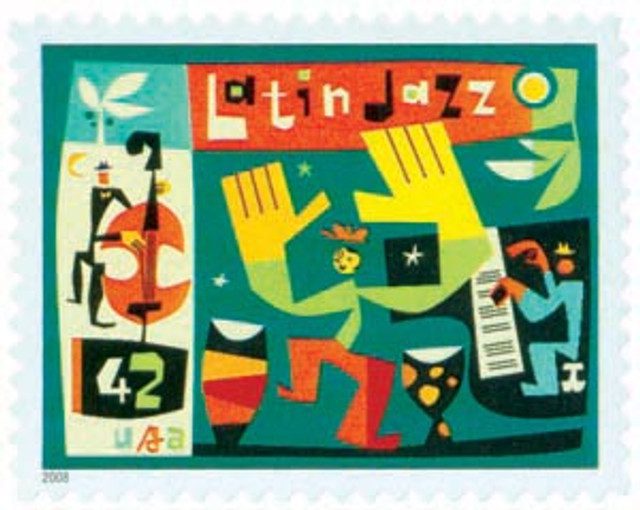
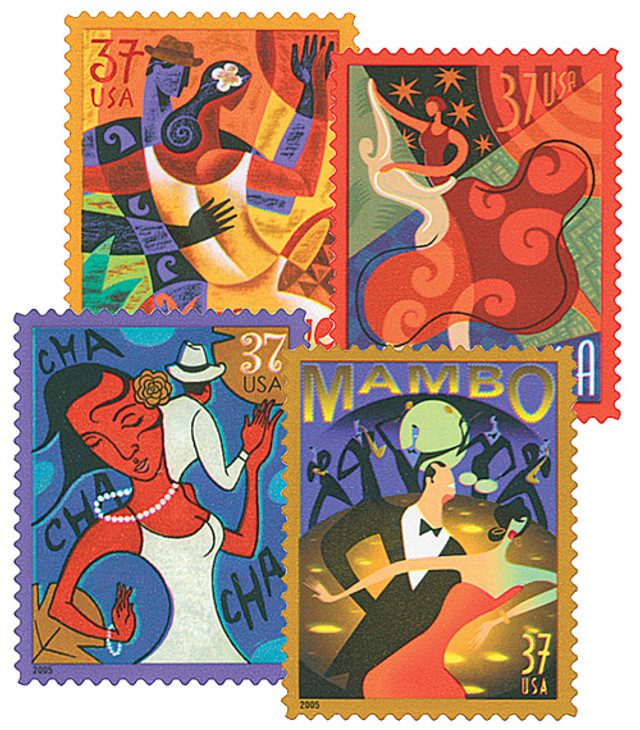
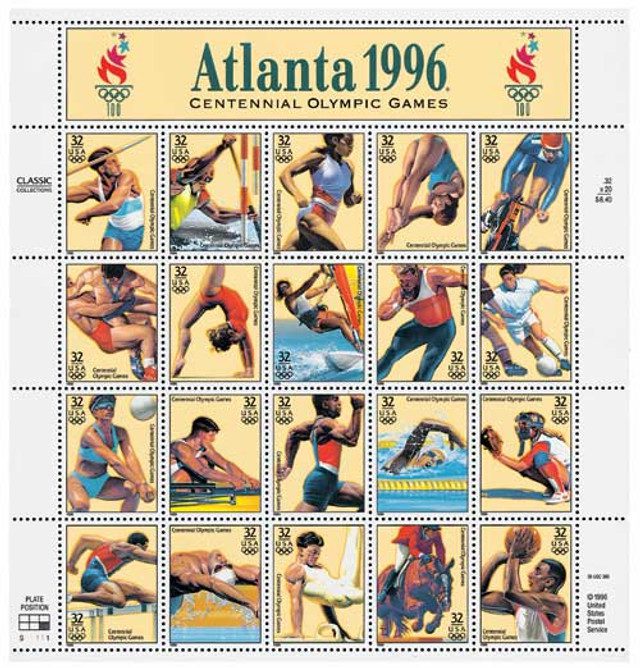
Nice to see a Latin person written up here.
Didn’t know about Mr. Puente, thanks for the link to his music. Fun and exciting clip.
Never , until now ever heard of him, but after reading the article I can hear the Latin rhythm and syncopated percussion. La musica la musica.
Sadly, I never had the chance to experience Tito Puente live and in person. But I did meet his very talented son, Tito Puente, Jr. and his band, and spent a fine evening with them as a (secondary) host.
The Tito Puente stamps are wonderful. Long live the King.